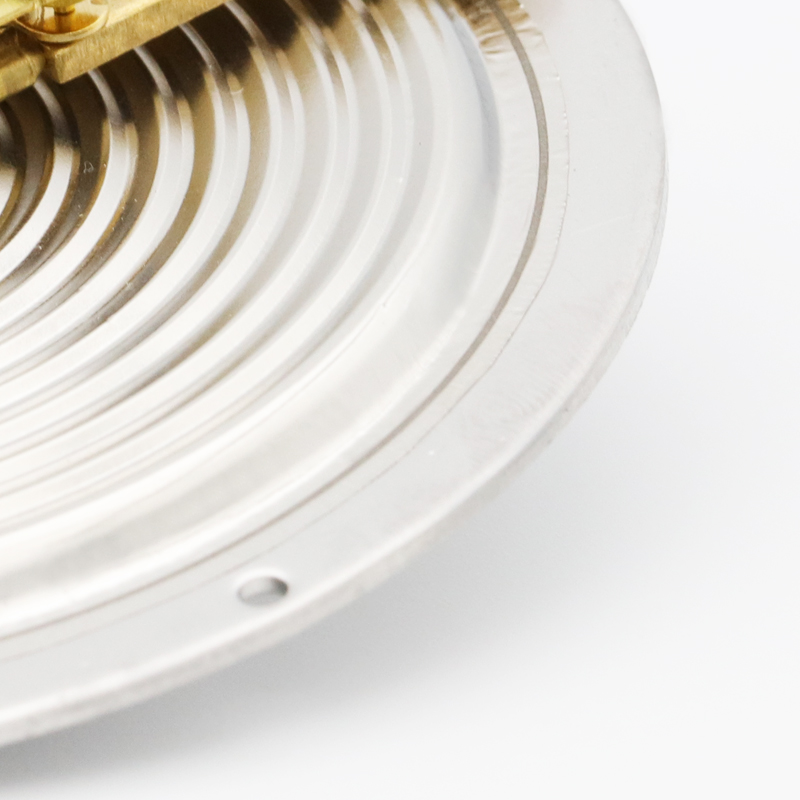
Aug . 19, 2024 21:49 Back to list
Exploring Different Types of Differential Pressure Gauges and Their Applications
Understanding Differential Pressure Gauge Types
Differential pressure gauges are essential instruments in various industries, including oil and gas, water treatment, and HVAC systems. These gauges measure the difference in pressure between two points in a system, providing critical insights into the performance and condition of equipment. Different types of differential pressure gauges offer specific advantages, applications, and features, making them suitable for diverse industrial requirements.
1. Mechanical Differential Pressure Gauges
Mechanical differential pressure gauges operate on the principle of deflection. They typically use a diaphragm or bellows that responds to pressure differences. When pressure is applied on either side of the diaphragm, it deforms, causing a pointer to move across a calibrated scale.
Advantages - Simplicity Mechanical gauges are relatively simple to install and maintain. - Durability Due to their robust construction, these gauges can withstand harsh environmental conditions.
Applications They are widely used in applications such as filter monitoring, level measurement in tanks, and HVAC systems.
2. Electronic Differential Pressure Gauges
Electronic differential pressure gauges utilize sensors to detect pressure changes. These sensors convert physical pressure readings into electrical signals that can be displayed on digital screens. Electronic gauges offer higher accuracy and can be integrated into automated systems.
Advantages - Accuracy and Sensitivity Electronic gauges can measure minute pressure differences, making them ideal for sensitive applications. - Data Logging and Remote Monitoring Many electronic gauges offer data logging capabilities and can be monitored remotely, providing real-time insights into system performance.
Applications These gauges are often used in laboratory settings, cleanrooms, and various industrial applications requiring precise measurements
.differential pressure gauge types quotes

3. Capacitive Differential Pressure Gauges
Capacitive differential pressure gauges make use of capacitive sensors. The difference in pressure causes a change in capacitance, which is then converted to a pressure reading. These gauges are particularly useful in applications where high sensitivity is required.
Advantages - High Sensitivity and Accuracy Capacitive gauges are highly sensitive and can detect very slight pressure changes. - Stability They typically offer excellent stability over time, ensuring reliable performance.
Applications Commonly found in pharmaceutical and biotech industries, where precise pressure measurement is crucial.
4. Vibrating Element Differential Pressure Gauges
Vibrating element gauges employ a vibrating element that changes its frequency in response to pressure differences. This frequency shift is measured and translated into a differential pressure reading.
Advantages - Wide Measurement Range These gauges can measure a wide range of differential pressures with high accuracy. - Minimal Drift Vibrating element gauges are known for their low drift and are effective in high-temperature environments.
Applications They are used in various applications, including process control, fluid systems, and aerospace.
Conclusion
Choosing the right type of differential pressure gauge is crucial for ensuring accurate measurements and optimal system performance. Factors such as the specific application, required accuracy, environmental conditions, and budget should guide this decision. Mechanical gauges provide durability and simplicity, while electronic gauges offer advanced features and greater precision. Capacitive and vibrating element gauges cater to niche applications requiring high sensitivity and stability. Understanding the different types of differential pressure gauges helps industries make informed choices, ensuring efficient operation and enhanced process control. As technology progresses, the development of new gauge types and improved features will continue to enhance the capabilities of differential pressure measurement in various industrial settings.
-
High-Precision 5 Valve Manifold Differential Pressure Gauge Suppliers
NewsApr.29,2025
-
High-Precision Diaphragm Vacuum Pressure Gauges Manufacturers & Quotes
NewsApr.29,2025
-
Omega Differential Pressure Gauges High Accuracy & Durability
NewsApr.28,2025
-
Low Pressure Differential Pressure Gauges Precision Solutions & Quotes
NewsApr.28,2025
-
Digital Diaphragm Pressure Gaauge Precision Measurement & OEM Quotes
NewsApr.28,2025
-
Differential Pressure Gauge China Price High-Accuracy & Best Quotes
NewsApr.28,2025
